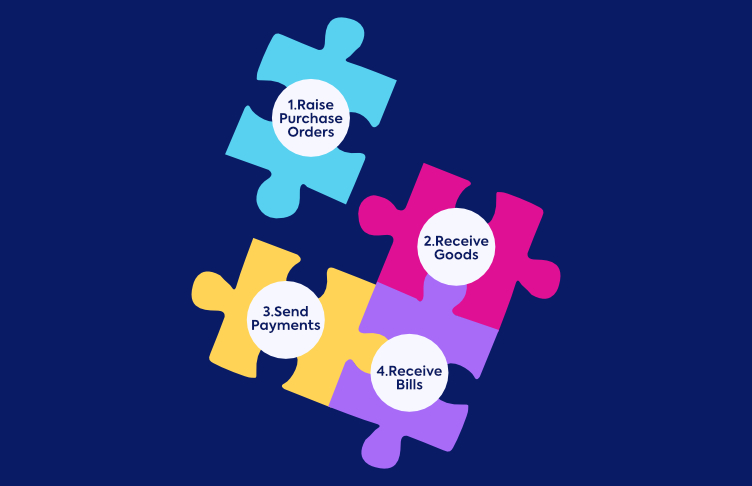
This release will allow SMEs to benefit from increased visibility and control of their spend – just one of the ways we’re making their lives easier!
This new capability will be useful for business applications and lenders alike, the introduction of purchase orders to the Codat dataset grants you complete visibility of your customers’ purchasing pipeline and will allow for increased automation in the end-to-end buying process – all via a single API.
Key Features
You can now create and view purchase orders directly within the accounting systems of your small business customers as well as being able to update the status of purchase orders to approved.
3 way match – you will be able to raise a bill once an invoice has been received from a supplier and link it to the originally raised purchase order. Receiving documents can then be attached to the bill for a 3 way match before approving for payment.
This release will help you better understand your risk exposure by providing crucial insights into their small business customer’s expected payables. For instance, the ‘expected delivery date’ and actual ‘delivery date’, surfaced via our API, can be used to calculate the fulfilment period – a period in which the merchant could experience distress.
Who will stand to benefit?
This update allows Codat clients to develop a deeper understanding of their customers’ outstanding orders by enabling them to track POs all the way from requisition through to invoicing and payment. For trade and supply chain financing facilities which are typically agreed at the PO raising stage, this level of ongoing insight is critical.
SMEs will benefit from increased visibility and control of their spend as well as enhanced automation of the buying process in their accounts, vastly reducing the requirement for manual data entry. This latest release allows companies to automatically match invoices received and update the status of the PO to closed while adding the PO number onto the raised bill.
What’s next?
This first release is supported on QuickBooks Online and Xero, with plans to add QuickBooks Desktop very soon. In the future, we plan to expand the new datatype to further integrations based on the feedback we receive.
We also plan to enable purchase orders to be automatically converted and linked to a new bill. This would make it possible for a bill to be automatically created using the details of an approved purchase order which it is linked back to.
Visit our Product Roadmap for more information about our future plans or to request additional portal functionality.
Get Started
To find out more about this new datatype or how integrations can improve your business, please contact [email protected].
